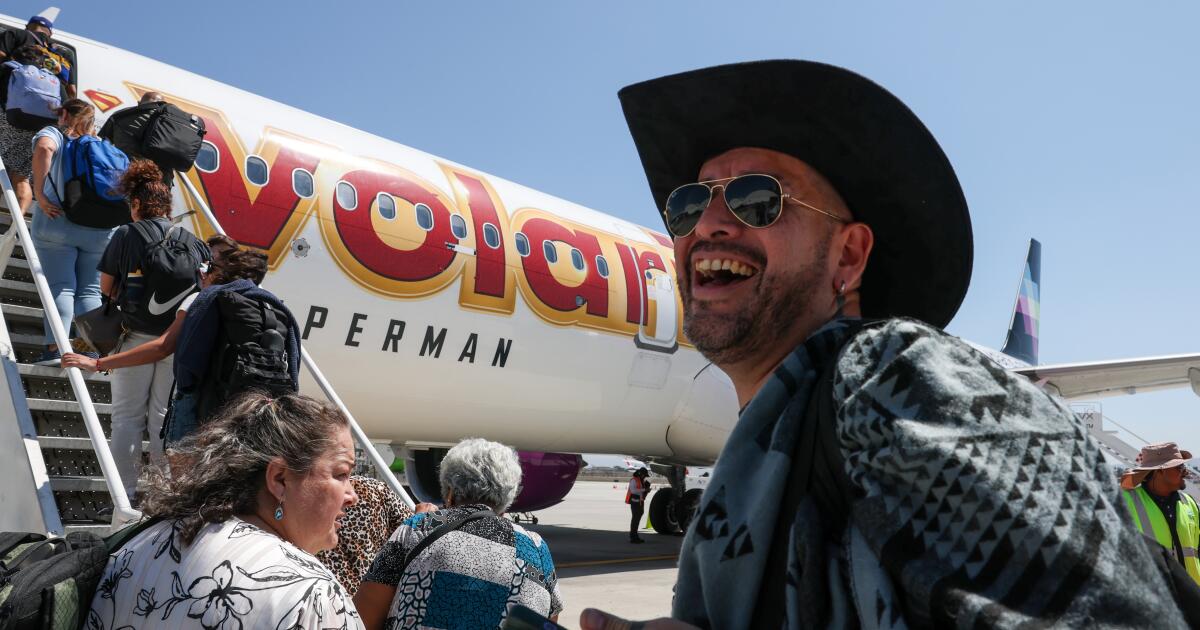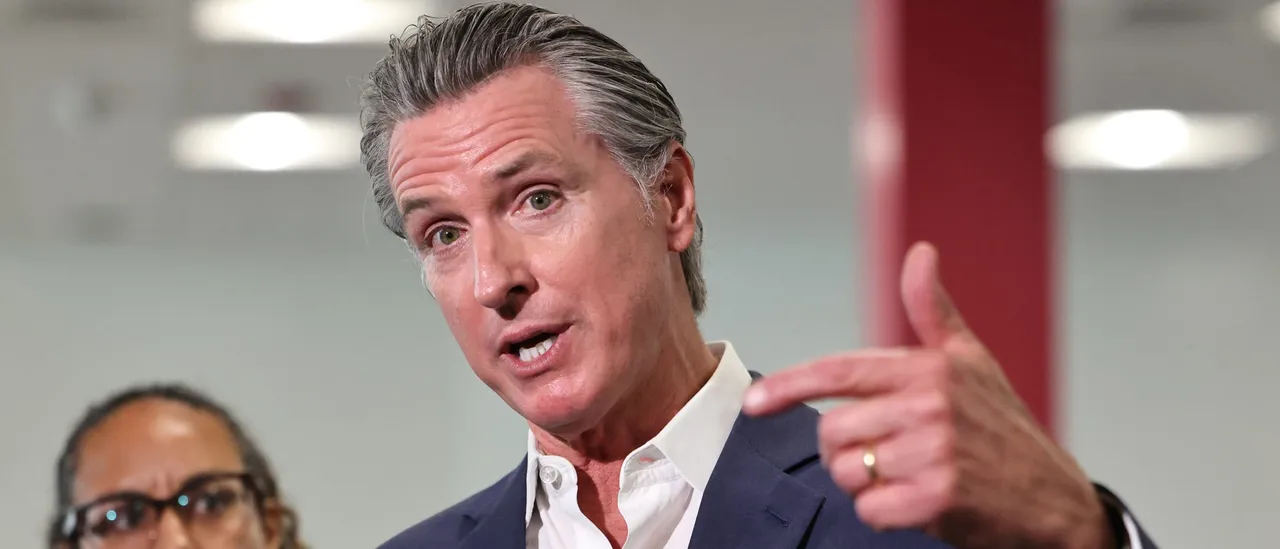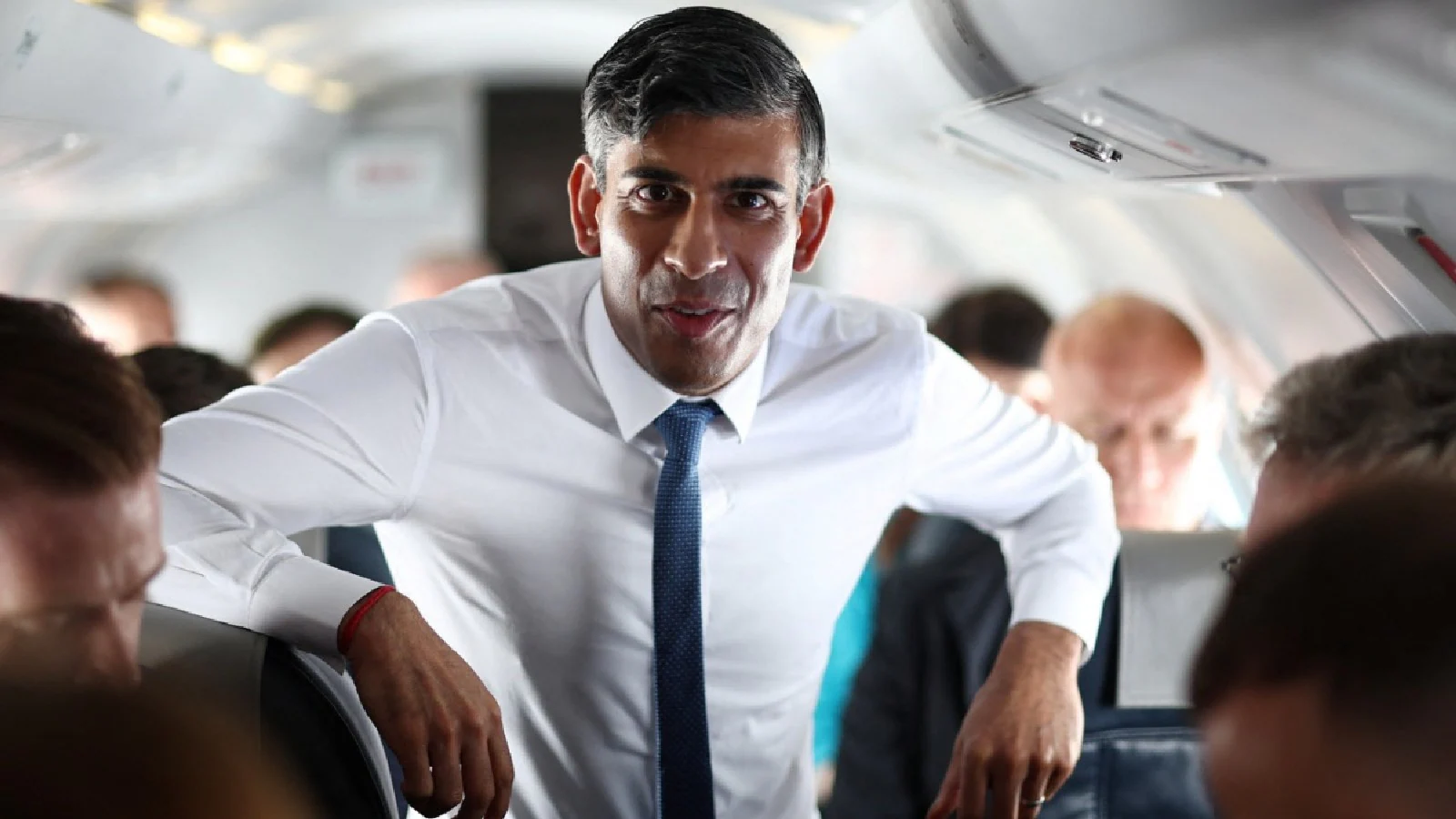Copyright Los Angeles Times

On an overcast morning in September, Hector Alessandro Negrete left his beloved Los Angeles — the city he was brought to at 3 months old — and headed down Interstate 5 to Mexico, the only country where he held a passport. It was a place that, to him, had “always felt like both a wound and a possibility.” Negrete, 43, sat in the passenger seat as a friend steered the car south and two more friends in another car followed. He had condensed his life to three full suitcases and his dachshund mix, Lorca. They pulled over at the beach in San Clemente. Angel Martinez, his soon-to-be former roommate, is deeply spiritual, and his favorite prayer spot is the ocean, so he prayed that Negrete would be blessed and protected — and Lorca too — as they began a new stage in their lives. On the near-empty beach, the friends embraced and wiped away tears. Martinez handed Negrete a small watermelon. As instructed, Negrete walked to the edge of the water, said his own prayer and, as a gift of thanks to the cosmos, plopped it into a crashing wave. Negrete doesn’t call it self-deportation. “Self-repatriation,” he said. “I refuse to use this administration’s language.” President Trump had been in office just over a month when Negrete decided he would return to Mexico. Methodical by nature, he approached the decision like any other — by researching, organizing and planning. Negrete secured three forms of Mexican identification: his voter credential, a renewed passport and a card akin to a Social Security ID. He registered Lorca as an emotional support animal, paid for a vaccine card and a certificate of good health, and crate-trained her in a TSA-approved carrier. He announced his decision to leave in June on his Substack newsletter: “If you’re thinking, ‘Alessandro’s giving up,’ look deeper. I am choosing freedom. For the first time, I feel unshackled from the expectations of waiting.” Negrete had grown tired of wishing for immigration reform. He had built his career advocating for immigrants such as himself, including stints as statewide coordinator for the Mexican American Legal Defense and Educational Fund, or MALDEF, and as executive director for the California Immigrant Youth Justice Alliance. His work had helped legalize street vending in Los Angeles and he assisted the office of then-California Atty. Gen. Kamala Harris in securing the release of a young woman from immigration detention. He was the first openly undocumented and LGBTQ+ person on the Boyle Heights Neighborhood Council. Under previous administrations, Negrete’s political work had felt like a shield against deportation. Even during Trump’s first term, Negrete had marched at rallies denouncing his immigration policies. But that was before the new Immigration and Customs Enforcement patrols that tore into Southern California during Trump’s second term. On June 6, as anti-ICE protesters took to the streets, Negrete rushed to downtown Los Angeles when fellow activists told him street medics were needed. “One of my homies said, ‘Hey fool, what are you doing here?’” he recalled. Seeing Los Angeles police officers advancing on the crowd, he realized that no amount of public support could protect him. He fled. “Thank God I left.” In mid-August, Negrete hosted a yard sale and going away party. The flier was tongue-in-cheek: “Everything must go! Including me!” His red T-shirt stated plainly, “I AM UNDOCUMENTED,” and his aviator sunglasses hid the occasional tears. Tattoos dotted his extremities, including an anchor on his right leg with the words “I refuse to sink.” “I think it hit me when I started packing my stuff today,” he told a former colleague, Shruti Garg, who had arrived early. “But the way you’ve invited everyone to join you is so beautiful,” she replied. One table held American pop-culture knickknacks — sippy cups with Ghostface from the movie “Scream,” collectible Mickey Mouse ears, a Detective Batman purse shaped like a comic book, another purse shaped like the locker from the ‘90s cartoon “Daria.” Negrete said the items reminded him of his youth and represented the gothic, quirky aspects of his personality. “I was born in Mexico, but I don’t know Mexico,” he said. “So I’m leaving the American parts of me that are no longer going to serve me.” The back yard slowly filled with loved ones from Negrete’s various social circles. There was his mostly queer softball team — the Peacocks — his running group, his chosen family and his blood family. Negrete’s close friend Joel Menjivar looked solemn. “I’m scared it’s going to start a movement,” he said. “Undocumented or DACA friends who are talented and integral to the fabric of L.A. might get ideas to leave.” Another friend, Mario Mariscal, said he took Negrete’s decision the hardest, though at first he didn’t believe Negrete was serious. More than once he asked, “You really want to give up everything you’ve built here for a new start in Mexico?” Eventually, Negrete had to tell Mariscal that his questions weren’t helpful. During a deeper conversation about his decision, Negrete shared that he was tired of living with the constant fear of getting picked up, herded into an unmarked van and taken away. “I just kept telling him, ‘That’s not going to happen to you,’” Mariscal said. “But the more this administration keeps doing it, the more it’s in our face, the more we’re seeing every horror story about that, it became clear that, you know what, you do have a point. You do have to do what’s right for you.” Negrete is cognizant of the privilege that makes his departure different from that of many other immigrants. He is white-passing, fluent in Spanish and English, and moved with $10,000 in savings. In June, he was hired as executive director of a U.S.-based nonprofit, Old School Hub, that works to combat ageism around the world. The role allowed him to live wherever he wanted. He decided to settle in Guadalajara, a growing technology hub, with historic buildings featuring Gothic architecture that he found beautiful. It also helped that Guadalajara has one of the country’s most vibrant LGBTQ+ scenes and is a four-hour drive from Puerto Vallarta, a renowned queer resort destination. As Negrete began his new job while still in L.A., he picked a moving date — Sept. 4 — and booked a two-week Airbnb near the baseball stadium. That Guadalajara’s team, the Charros de Jalisco, wore Dodger blue felt like a good omen. On the drive toward the border, messages poured into Negrete’s phone. “I’m sending you all my love Alessandro,” one read. “Cuídate. [Take care.] Know that even though you’re far away from home, you carry us with you.” “Todo te va a salir bien,” read another. Everything will go well for you, it said. “Spread your wings and flyyyyy.” Afraid of being stopped and detained at the airport, as has happened to other immigrants attempting to leave the country, Negrete preferred to drive to Tijuana and then fly to Guadalajara. Negrete’s driver, his friend Jorge Leonardo, turned into a parking lot at the sign reading “LAST USA EXIT.” Negrete put on his black felt tejana hat and called Iris Rodriguez, who was in the companion car. He asked her to cross on foot with him. “I don’t want to go alone,” he said. “We’re still on American soil,” Leonardo said. “You can still change your mind.” Negrete ignored him. “See y’all on the other side,” he said as he hopped out of the car. He and Rodriguez stopped for photos in front of a sign with an arrow pointing “To Mexico.” Around a corner, the border came into full view — a metal turnstile with layers of concertina wire above it. The line for Mexicanos was unceremoniously quick. The immigration agent barely glanced at Negrete’s passport before waving him through. On the other side, a busker sang “Piano Man” by Billy Joel in perfect English. “Welcome to the motherland,” Rodriguez told him. Negrete let out a deep breath. Negrete’s immediate family members, and almost all of his extended family, live in the U.S. He was born in Manzanillo, Colima, in 1982. Three months later, the family relocated to Los Angeles, where his parents had two more children. At 17, Negrete was one of two students in his graduating class at Roosevelt High School to get into UC Berkeley. That’s when he found out he didn’t have papers. His parents had divorced and his father married a U.S. citizen, obtaining a green card when Negrete was at Roosevelt. They began the legalization process for Negrete in 1999, but two years later he came out to his family as gay. His father was unsupportive and refused to continue seeking to adjust his immigration status. By the time they mended their relationship, it was too late. Negrete had aged out of the pathway at 21. In 2008, Negrete was arrested for driving while under the influence of alcohol. Four years later, President Obama established the Deferred Action for Childhood Arrivals, or DACA, program to protect immigrants who were brought to the U.S. as children. Negrete failed to qualify because of the DUI. He got his record expunged in 2016, but — again — it was too late. The following year, Trump began unwinding DACA, shutting out new generations of recipients, including Negrete. Negrete waited until his last night in the U.S. to tell his mother, who now lives in Colorado, that he was leaving. He had grown tired of friends and other family members begging him to change his mind. He had partially hinged his decision on the fact that his mom was in remission from her third bout with cancer and had just obtained legal residency. With life more stable for her, he could finally seek stability for himself. “You taught me to dream,” Negrete recalled telling her. “This is me dreaming. I want to see the world.” She cried and scolded him, promising to visit and repeating what she had said when he came out to her all those years before: “I wish you told me sooner.” At a hotel in Tijuana, Negrete’s emotions finally caught up with him. The day after Negrete and his three friends left L.A., three more friends surprised him by arriving in Tijuana for a final Friday night out together. One of them presented a gift he had put together with help from Negrete’s entire social circle — a video with loved ones sharing messages of encouragement. In Negrete’s hotel room, as he and his friends watched, the mood grew sentimental. “You’re basically the one that formed the family friend tree,” one friend said in her clip. “Friendships do not die out in distance.” Negrete sobbed. “Yes! Friendships don’t have borders,” he said. “Every single one of you has said this hasn’t hit y’all, like it’s a mini vacation,” he said. “I want to think of it as an extended vacation.” “This isn’t goodbye, this is we’ll see each other soon,” he continued. Off his soapbox, Negrete then chided his friends for making him cry before heading to a drag show. Negrete had a habit of leaving social gatherings abruptly. His friends joked that they would refer to him as “catch me on the 101” because every time he disappeared during a night out, they would open Apple’s Find My app and see him on the freeway heading home. “We’re not gonna catch him on the 101 no more,” Martinez said. On the flight to Guadalajara, Negrete’s heart raced and he began to hyperventilate. The anxiety attack caught him off guard. Negrete had worked hard to show his friends and family that he was happy, because he didn’t want them to think he had doubts — and he had none. But he began to worry about the unknown and to mourn his former dreams of gaining legal status and running for public office. “It hit me all at once,” he recounted. “I am three hours away from a whole new life that I don’t know. I left everything and I don’t know what’s next.” Many deep breaths by Negrete later, the plane descended through the clouds, revealing vibrant green fields and a cantaloupe-hued sunset. Inside the Airbnb, he was surprised to find a clothesline instead of a dryer. Noticing the blue 5-gallon jug of water in the kitchen, he remarked that he would have to remember tap water wasn’t safe to cook with. But alongside the new was something familiar: The view from his 11-story apartment showed off a sprawling metropolis dotted with trees, some of them palms. The next day started off like any Sunday, with a trip to Walmart and drag brunch. Negrete marveled at the cost of a large carton of egg whites ($1) and was shocked to see eggs stored at room temperature, liquid laundry detergent in bags and only single-ply toilet paper. He treated himself to a Darth Vader coffee mug and a teapot featuring characters from “The Nightmare Before Christmas.” After brunch, it was time to play tourist. Negrete was accompanied by Rodriguez, who stayed with him for the first two weeks, and a new friend, Alejandro Preciado, whom he had met at Coachella in April and happened to be a Guadajalara local. Their first stop was the city’s Spanish Renaissance cathedral, where Negrete said a quick prayer to the Virgin Mary at his mother’s request. Negrete treated his friends to an electric carriage ride around the historic buildings, where he excitedly pointed out the Gothic architecture, then they bought aguas frescas and walked through an open-air market, chatting in an English-heavy Spanglish. “I’m trying to look at how people dress,” Negrete said, suddenly self-conscious about his short shorts. “I’m pretty sure I stand out.” After dinner, Negrete was booking an Uber back to his Airbnb when a message popped up: “We’ve detected unusual activity.” The app didn’t know he had moved. Before he arrived in Guadalajara, Negrete had already joined an intramural baseball team and a running club. Practices began days after his arrival. Within a month, he moved into an apartment, visited Mexico City and reconnected with aunts in Mexico City and Guadalajara he hadn’t seen in decades. He reflected on the small joys of greeting neighborhood señoras on morning dog walks, discovering the depths of Mexican cuisine and the peace of mind that came with no longer feeling like a target — though he’ll still freeze at the sight of police lights. Still, Negrete remained glued to U.S. politics. In late September, the federal government detailed plans to begin processing initial DACA applications for the first time in four years. Had Negrete stayed in the U.S., he would have finally qualified for a reprieve. He isn’t regretful. His new dreams are wide-ranging. He wants to buy a house in Rosarito, where friends and family from L.A. could visit him. He wants to travel the world, starting with a trip to Spain. And he wants to help U.S. organizations build resources for other immigrants who are considering repatriating. The goal isn’t to encourage people to leave, he said, but to show them they have agency. “I actually did it,” he said. “I did it, and I’m OK.” Now, he said, Mexico feels like an estranged relative that he’s getting to know again.



